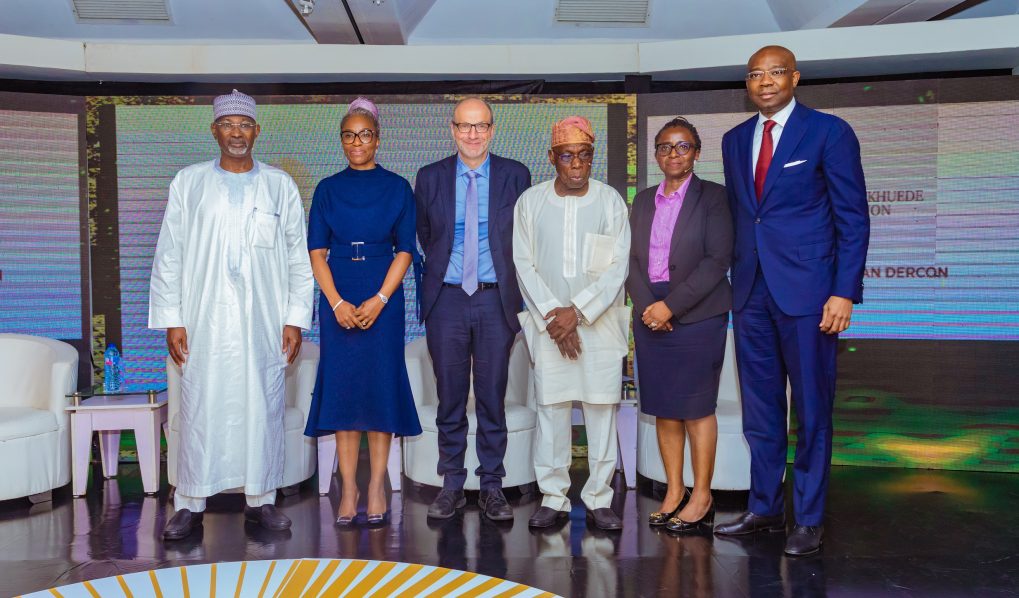 Country on road to Zimbabwe, Augusto warns
Country on road to Zimbabwe, Augusto warns
One of the top global-rated economists and Director of the Centre for the Study of African Economies, University of Oxford, Prof. Stefan Dercon, yesterday, painted a grim picture of Nigeria’s economy and concluded that the country is trapped in the ‘elite bargain’.
Dercon, an author of best-selling economics literature who has done extensive research on policy issues in Africa, spoke at the unveiling of the inaugural edition of the State of Enterprise Report, a publication of EnterpriseNGR.
The economist, who said he has interacted with Nigeria’s national economic managers in the past 15 years, rued the excessive personalisation of the commonwealth of the country by a few individuals, noting that the country has a rare opportunity to change and rewrite its history or emerge as the country with the highest number of poor people in 2030.
He said the elite bargain has kept the country back from converting its “resilience and smart people” to a catalyst of growth and development. He recalled that he had never bought anything made in Nigeria outside the country and regretted that crude happened to be the only commodity exported by the country.
Sadly, he noted, proceeds of the oil sale are shared by a few people with “Nigeria being the loser of the entrenched elite bargain.” Elite bargain, as opposed to inclusiveness and communal development, relates to a discrete agreement or series of agreements that sets out to re-negotiate the distribution of power and allocation of resources among a few individuals.
Dercon said Nigeria “needs a functional democracy to keep people accountable”, insisting that “more people need to show leadership in the country”.
He made a strong call on business leaders to use their power and influence to effect the implementation of a growth and development template, saying “they are central” to changing the narrative.
Much as he faulted the policy blueprints, which he said are “really bad” he did not subscribe to the notion that the economic managers do not know what to do. He insisted that when people consistently made bad choices, “they know exactly what they are doing.”
In an exclusive interview with The Guardian, Dercon came hard on the policy-makers, saying the best time to have fixed the macroeconomic instability currently facing the country was, at best, six or seven years ago.
With Nigeria currently trapped in the crossfire of cooling inflation, stabilising the foreign exchange rate market and sustaining growth, the author said there are no easy choices but regretted that the country throw a party during the boom only to begin to panic when the economy nosedive.
He insisted that the Central Bank of Nigeria (CBN) could not afford a sudden implementation of a market-driven management option at the moment, a decision it would have taken when the going was smooth.
“Whenever Nigeria has an opportunity, it celebrates. That has been the problem. Unfortunately, crude oil is the country’s mainstay. When there is stability, it fails to set up a macroeconomic framework that would encourage other sectors, including agriculture to flourish.
“Such decisions are easier and cheaper when there is stability. Whenever the exchange is stable, the country sits and fails to do anything. But when the exchange rate begins to fall, it wants to stop the fall. Nigeria does not sell anything; it should know,” he said.
In his wisdom, there is nothing much Nigeria can do about the foreign exchange crisis but continue to manage. He warned against pulling the plug at this critical money, insisting there would be an explosion if the apex bank tries to switch from managed float to a market-led model.
The professor said there are no tailor-made solutions to Nigeria’s challenges. He urged the CBN to continue to manage the crisis but urged the economic manager to set a clear commitment to set up a credible macroeconomic framework when the economy stabilises. “There is magic”, the authority can do as any decision will come with dire consequences.
The Oxford don said the government went into unrestrained debt accumulation believing that there would be magic such as cancellation along the way. The decision, he said, is hurting the economy badly.
At another meeting of the Bank Directors’ Association of Nigeria (BDAN), Managing Director, Agusto & Co, Olabode Augusto, raised that the country is “on the road to Zimbabwe” concerning its debt accumulation.
Augusto said Nigeria’s revenue leveraging had hit 10x whereas Ghana which is currently negotiating debt restructuring with the International Monetary Fund (IMF) is doing 3x while crisis-ridden Sri Lanka sits on 7x leveraging. He described Nigeria as a serious crisis, saying: “Somebody must stop it”.



